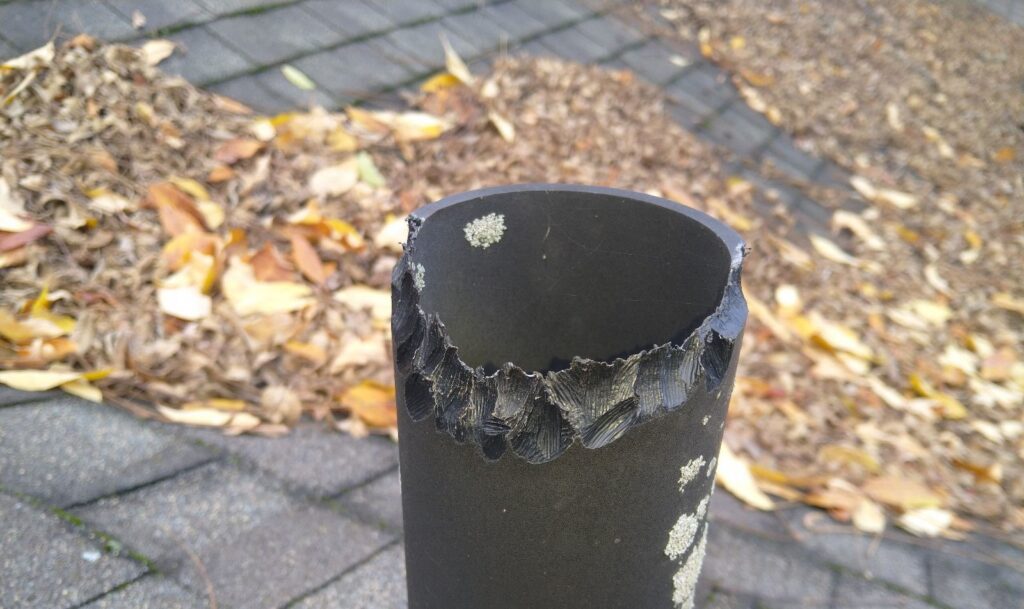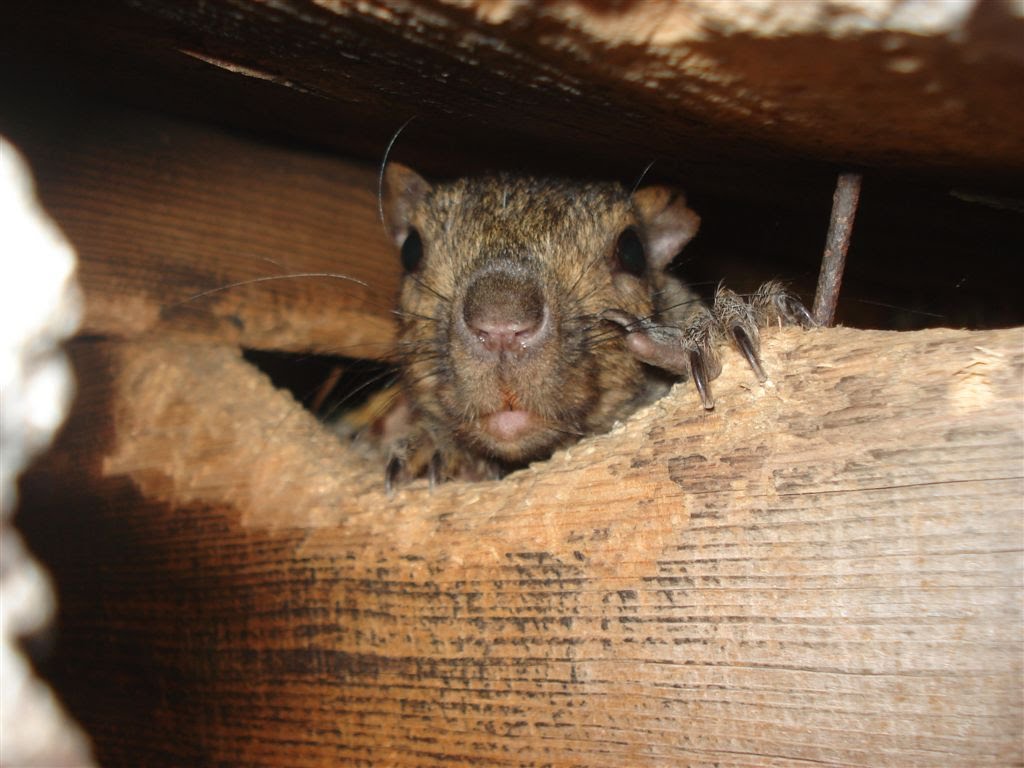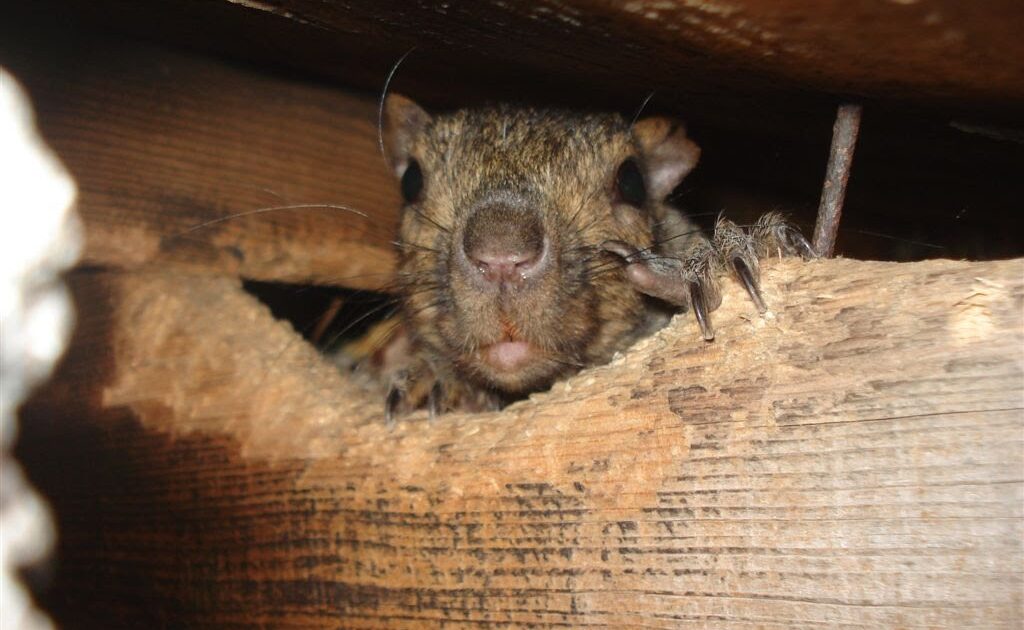When it comes to managing wildlife in Minneapolis, one of the most common challenges homeowners face is dealing with squirrels that seem to chew on everything. Understanding why squirrels keep gnawing on things is essential for effective wildlife removal. These small animals have teeth that grow continuously, which means they need to chew regularly to keep their teeth at a manageable length. It’s not just random; this chewing behavior is necessary for their survival.
Squirrels are often found gnawing on wood, wires, and even plastic, causing significant damage to property. Learning how to deter squirrels can save you time, money, and stress. One of the key squirrel facts to remember is that their chewing is driven by natural instincts, not just an appetite for destruction.
This makes it important to rely on Skedaddle’s professional wildlife removal services. Our experts use humane methods to deter these animals from causing further damage, ensuring a safe and effective solution that protects both your home and the local wildlife.
Understanding Why They Chew
Squirrels belong to the rodent family, which means they share certain characteristics with other rodents, such as mice and rats. One of the most notable traits is their constantly growing teeth. Unlike humans, whose teeth stop growing after a certain age, squirrels’ teeth never stop growing. This continuous growth necessitates a need to chew constantly to keep their teeth at a manageable length. Without regular gnawing, their teeth could grow too long, leading to health problems and difficulties in eating.
The act of chewing also serves another purpose. It allows them to access food and create nesting spots. For example, they might chew through the husk of a nut to get to the edible part inside. Similarly, chewing on tree bark or other materials helps them build nests for shelter. While these behaviors are perfectly natural and beneficial for squirrels, they can be quite problematic when they occur in human environments.
The Problems Squirrel Chewing Can Cause
Squirrels’ constant chewing can lead to various issues for homeowners. One significant concern is the potential damage to property. Squirrels have incredibly strong teeth that can gnaw through wood, plastic, and even metal. This means they can easily cause damage to your home by chewing through siding, roofing, and insulation. Not only does this create entry points for the squirrels themselves, but it can also allow other pests to enter your home.
Another major problem is the risk of fire. Squirrels often chew on electrical wires, which can strip away the protective coating and expose the wires inside. This creates a serious fire hazard, as exposed wires can spark and ignite nearby materials. Unfortunately, many homeowners are unaware of this danger until it’s too late, making it essential to address any signs of squirrel activity promptly.
Additionally, squirrels can cause damage to gardens and outdoor areas. They may chew on plants, garden furniture, and even outdoor wiring. This can be frustrating for homeowners who put time and effort into maintaining their gardens and outdoor spaces.

Why Squirrels Keep Gnawing on Things
Squirrels are not picky when it comes to what they chew on, but some materials are particularly appealing to them. Wood is one of the most common targets due to its availability and ease of access. They use wood for nesting and as a source of nutrition, as it contains certain minerals they need. Unfortunately, this means that wooden structures in your home, such as beams and furniture, are at risk.
Plastic is another material that squirrels frequently chew on. The reason for this is twofold. Firstly, plastic is often found in areas where they are searching for food, such as in trash bins or bird feeders. Secondly, the texture of plastic can help them sharpen their teeth more effectively than softer materials.
Metal might seem like an unlikely target, but squirrels have been known to chew on it as well. This is often because metal objects, like gutters and pipes, are found in areas where they are building nests. Chewing on metal helps them access these areas and create more secure nesting spots.
How to Identify Squirrel Damage
Recognizing the signs of squirrel damage is crucial for addressing the problem before it gets out of hand. One of the most obvious indicators is the presence of gnaw marks on various surfaces. These marks are typically small, parallel grooves caused by the squirrel’s incisors. You might find these marks on wooden beams, plastic containers, or even metal pipes.
Another telltale sign is the sound of scratching or chewing coming from within your walls or attic. Squirrels are most active during the early morning and late afternoon, so listen for these noises during those times. If you hear persistent scratching or gnawing, it’s likely that squirrels have made their way into your home.
Additionally, you might notice damage to your garden or outdoor areas. Plants with chewed leaves or stems, overturned bird feeders, and gnawed garden furniture are all signs that squirrels have been active in your yard. Keep an eye out for these indicators to catch the problem early.
Preventing Squirrel Infestations
Taking steps to prevent squirrels from entering your home is essential for avoiding the problems associated with their constant chewing. One effective method is to seal any potential entry points. Check your home for gaps or holes in the siding, roofing, and foundation, and use materials like steel wool or hardware cloth to block these openings. Be sure to check vents and chimneys as well, as squirrels can easily access your home through these routes.
Another preventive measure is to remove any food sources that might attract squirrels. This includes securing trash bins, storing pet food indoors, and using squirrel-proof bird feeders. By eliminating easy access to food, you can reduce the likelihood of squirrels making your home their own.
Additionally, consider trimming any tree branches that are close to your home. Squirrels often use these branches as pathways to access roofs and upper levels of houses. Keeping branches trimmed back can make it more difficult for squirrels to reach your home in the first place.
The Process of Squirrel Removal
Understanding how Skedaddle handles squirrel removal can give you peace of mind knowing that your home is in good hands. Our process begins with a comprehensive inspection of your property. We look for signs of squirrel activity, such as gnaw marks, droppings, and nesting materials. We also identify potential entry points that need to be sealed.
Once we’ve completed the inspection, we implement a safe and humane removal process. This involves using specialized equipment and techniques to encourage the squirrels to leave your home. We do not use traps or relocation methods, as these can be harmful to the animals and may not effectively solve the problem.
After the squirrels have been safely removed, we focus on securing your home to prevent future infestations. This includes sealing entry points, reinforcing vulnerable areas, and providing recommendations for additional preventive measures. Our goal is to ensure that your home remains squirrel-free in the long term.
A Humane Solution
Squirrel infestations can be a challenging and frustrating issue for homeowners. Their constant chewing can cause significant damage to your property and create potential safety hazards. However, understanding the reasons behind this behavior and taking proactive measures can help mitigate the problem.
While there are various DIY methods available, professional wildlife control services like Skedaddle offer the most effective and humane solution. Our team of experts is trained to handle squirrel infestations efficiently and ethically, ensuring that your home is protected in the long term.
If you suspect a squirrel infestation or want to take preventive measures, consider reaching out to Skedaddle for a comprehensive inspection and customized solution. Our commitment to humane wildlife control and customer satisfaction makes us the best choice for protecting your home from squirrel damage.
Contact us today to schedule an inspection and learn more about how we can help you keep your home squirrel-free.




